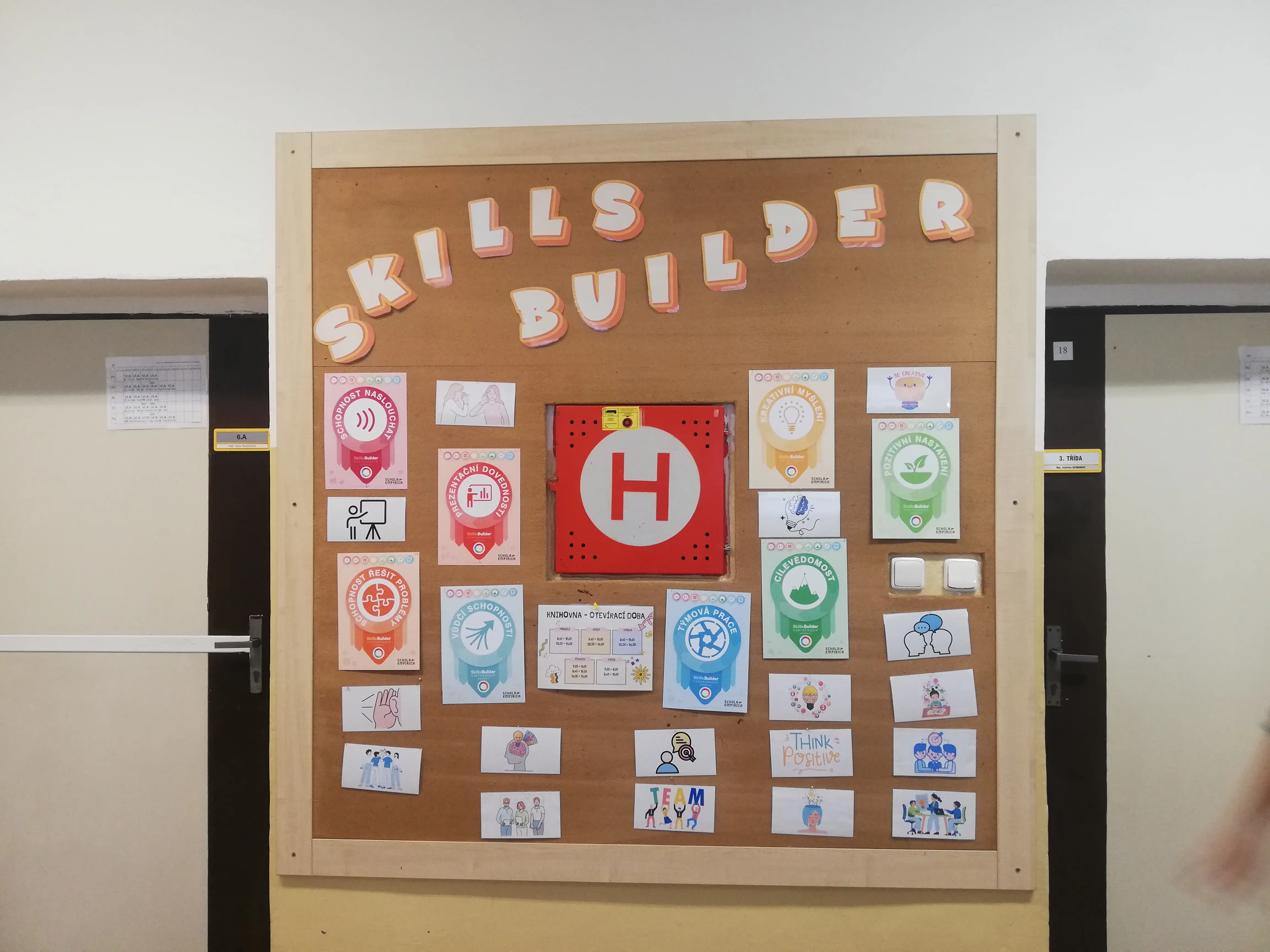This content was written by
ZŠ a MŠ Ostrava-Krásné Pole, Družební 336, p.o.
We are a state primary school for pupils aged 6 to 15. With our current enrolment, we are considered a medium-sized school and are located in the heart of a city district, where we serve as an integral part of the local community. Our aim is to foster a modern, open, and stimulating educational environment that meets the needs of today’s world. We actively implement innovative educational programmes and approaches, such as the Finnish KiVa anti-bullying programme and the Skills Builder Framework, which systematically develops our pupils’ essential skills.
An important aspect of our school life is our involvement in international educational projects, particularly through Erasmus+, which enables us to share experiences with schools across Europe, enhance language skills, and promote cultural understanding.
We place a strong emphasis on essential skills development. Our teaching is built around cross-curricular connections and encourages pupils to think critically and actively. We guide them to explore solutions, ask questions, and develop both independent thinking and collaborative skills.
We are also committed to strengthening digital competence and integrating information and communication technologies as a natural part of the learning process. In language education, we apply the CLIL method (Content and Language Integrated Learning), which links foreign language learning with subject content, increasing language fluency and real-world usage.
Our School Council plays an active role in shaping school life, organising events for peers and promoting democratic values and shared responsibility for the school environment. Most importantly, we prioritise relationships between pupils and teachers, and the development of a positive school climate. We strive to create a safe, friendly, and respectful space where every pupil can thrive according to their individual abilities and needs.
The Skills Builder methodology has brought a clear structure to how we approach essential skills development across the curriculum. It enables meaningful integration of these skills within various subjects. So far, three teachers (out of 21) and 36 pupils (out of 279) have been actively involved. Pupils are developing both their social and communication skills, learning to work independently as well as in teams. That is why we decided to support their growth with a structured, consistent approach to essential skills development. Thanks to this methodology, we have observed improved confidence in communication, stronger self-reflection, and a more proactive attitude towards learning. It has also contributed to a more positive classroom climate, where pupils learn to respect different perspectives, collaborate effectively, and solve problems constructively. Throughout the school year, we follow the six core principles of the Skills Builder methodology, which have proven key to successfully embedding essential skills into everyday teaching.

We organise regular school events involving pupils, parents, and the wider community, where pupils practise their skills in real-world contexts. This includes Open Days and public-facing school events where pupils act as hosts, guides, workshop facilitators, or presenters. We also collaborated on an essential skills presentation with a partner primary school in Háj ve Slezsku.
We plan to formally integrate the Skills Builder Framework into our School Educational Programme, which we will develop collaboratively with staff. We also aim to involve Year 1 pupils more actively, encourage engagement from Year 2 and Year 3 teachers, and continue organising teacher meetings focused on sharing good practice and reflecting on peer observations.
























